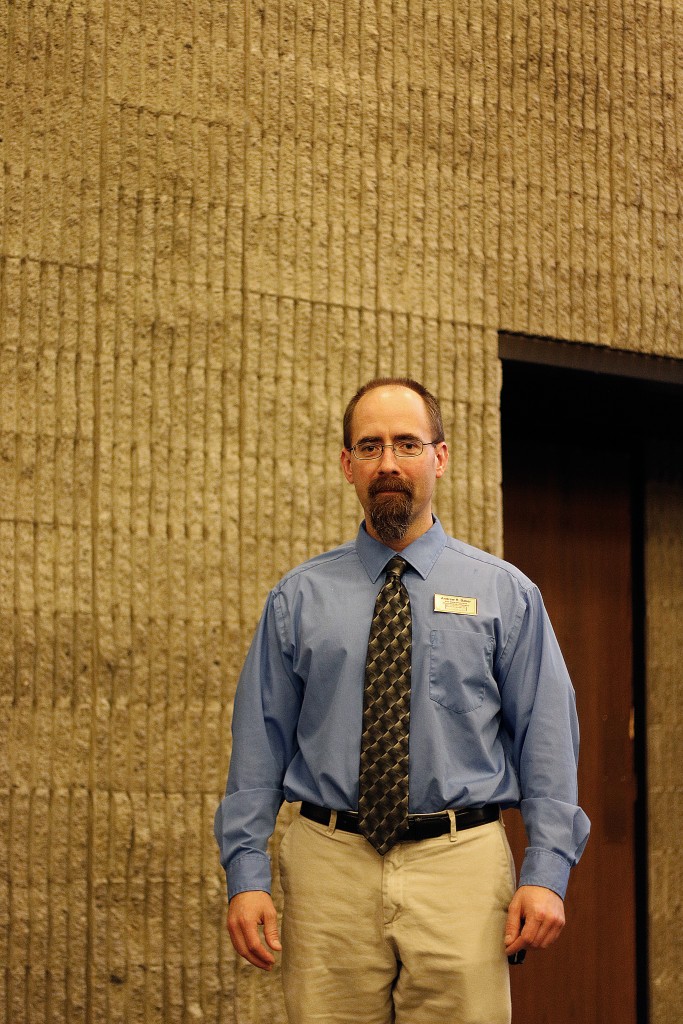
In 1972, the Department of Justice passed Title IX to the Educational Amendments, an effort to prohibit discrimination based on gender and provide resources to those facing it. Now, Binghamton University has hired someone to enforce it full-time.
Andrew Baker began his job as the Title IX coordinator in the beginning of November. He described his job as a “direct reference” for students who are undergoing any sort of discrimination based on gender.
“Title IX is essentially supposed to have the big-picture view — you might call it the 30,000 foot view — of all things related to harassment, assault, dating violence, domestic violence, stalking,” Baker said. “We are the folks that sit up and look at the big picture stuff, about how processes work effectively and efficiently, all of the rules and laws and mandates coming from the state level and ask, are those being met by our processes here?”
Baker’s job entails both guiding students through the legal processes after experiencing discrimination and working with other offices on campus that deal with students to improve interactions with them. One of the people Baker will be working with is the dean of students, April Thompson, who sat on the search committee for the job. It had previously been filled by Valerie Hampton, the chief diversity office in the Office of Diversity, Equity and Inclusion.
“The Title IX Coordinator is responsible for oversight of the whole University’s response to these incidents. This is a big job and at Binghamton we are fortunate to have someone doing this full time,” Thompson wrote in an email. “The community (students, faculty and staff) benefit from have a centralized resource who can devote time to this effort.”
Baker acknowledged that having someone devoted full-time, as opposed to having other responsibilities in addition to the job, will benefit students.
“It’ll provide more time to spend on coordinating with other offices, making sure the students are experiencing a process that is fair, equitable and meets all the tenets of the law, and to its greatest ability respects their wishes and desires throughout the process,” he said. “Institutionally, it represents a commitment to the process and the things that Title IX addresses.”
This is not Baker’s first time working within the SUNY system; he had previously worked in student conduct at Finger Lakes Community College and in Residential Life at SUNYs Delhi and Geneseo.
“Having a background in that area helps me relate to what students bring to the table when they’re having difficulties and challenges or when things happen,” Baker said.
These “things” began to be addressed in 1972 as anti-discrimination legislature to protect gender, and Baker described it as evolving into a much larger scope today.
“It stems from discrimination,” he said. “But the Office of Civil Rights, in its interpretation and implementation of that, interprets it as students being disadvantaged in terms of everything from harassment to physical violence based on that student’s sex. And not to confuse terms, but that applies regardless of how people identify in terms of gender or sexual orientation.”
Having previously worked on initiatives like bringing gender-neutral housing and bathrooms to campuses, Baker said it was important to have someone available to listen to students and figure out how to apply them on an institutional level.
“People experience things differently based on what they bring to the table,” he said. “And an institution needs to be ready and prepared to meet and work with those students and ensure that from their unique perspective all the different processes are fair and just things to meet their needs. And if they’re not, it’s up to me to recommend changes.”
However, some students are apprehensive. Sophie Gamer, a senior majoring in biology, said she hoped issues on campus would be addressed.
“I have high hopes but I’m wary,” Gamer said. “A Title IX coordinator under the authority that has been reported for Title IX violations is hard to hold accountable. His effectiveness is in his actions. If he shows that Binghamton cares about sexual assault, it means that he takes care of victims and doesn’t just say that he does.”


